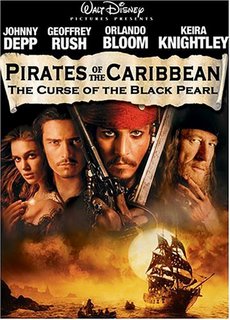 MUNICH - MOVIE REVIEWHE SAID:
MUNICH - MOVIE REVIEWHE SAID:
I once read that the true measure of success of a book or movie, is if it changes the way you look at the world around you. By that measure, Munich is an astounding success. It makes us question when it is correct to kill someone. Is it ok if you are a soldier and fight to defend your nation? Or is it ok to kill some one to defend your family. Where does it stop? It is an ethical slippery slope down which, all people who are put in the situation of killing find themselves falling.
Whatever the circumstances may be, taking a human life will leave serious scars on one's psyche, as ably depicted by Eric Bana in the movie. He has portrayed superbly the hell that a normally decent person, would go through when made to take lives, although on behalf of a nation state.
The questions raised by this movie are like layers of an onion. First you question the madness of the Palestinian's execution of the Israeli athletes. Then you question the Israelis decision to use the
kidon - small groups of assassins, to eliminate all the Palestinians responsible for the Munich Olympic massacre. Is it right for a country to sanction such activities, no matter what the provocation? What about the legal justice system? Is it just for show?
The genius of Steven Spielberg lies in depicting an actual event as factually as possible and then using the characters to question every angle of the incident and the response to the incident. This way he lays out all the moral questions for the viewer to chew over and ruminate. Although it is true that Spielberg is Jew and as such does show a little bias, he is faithful to the human issues facing the characters rather than take sides.
All the covert violence in European cities, harkens back to the days of the Cold War and really illustrates how it must have been back in those days where agents from rival nations routinely "sanctioned" each other. I guess we have swapped that hell for the current one filled with terrorists and the people fighting them. The more things change the more they stay the same!
There is a very poignant moment at the end of the movie, where Geoffrey Rush's character, who is the case officer for Eric Bana's character, refuses Eric Bana's offer to go to his home and break bread with him. What could be the possible reasons for Geoffrey Rush's refusal? Could it be that he does not want to get too close to the man who could be killed by the Mossad for becoming a nuisance and a security threat? Or could it be because Geoffrey Rush finds it morally repugnant to break bread with a killer, no matter how noble or sanctioned by the state his motives are for killing? The questions are endless and the issue is open.
Must see movie for all movie buffs.
On a scale of 1 to 10, 1 being the worst and 10 being the best, I give this movie a
9.
SHE SAID:I just do not see what all this violence has to do with displaying the moral dilemma facing ordinary men when they are forced by circumstances to kill other men. They could have shown it a bit more tastefully.
I guess it has become a Spielberg trademark to overkill on the emotional angle. All in all a movie that can be watched once. Eric Bana does a great sensitive guy who can cry, when overwhelmed by emotions. That is a change from the tough guys that have populated movies for the longest time.
On a scale of 1 to 10, 1 being the worst and 10 being the best, I give this movie a
3.
 HOSTEL - MOVIE REVIEW
HOSTEL - MOVIE REVIEW








